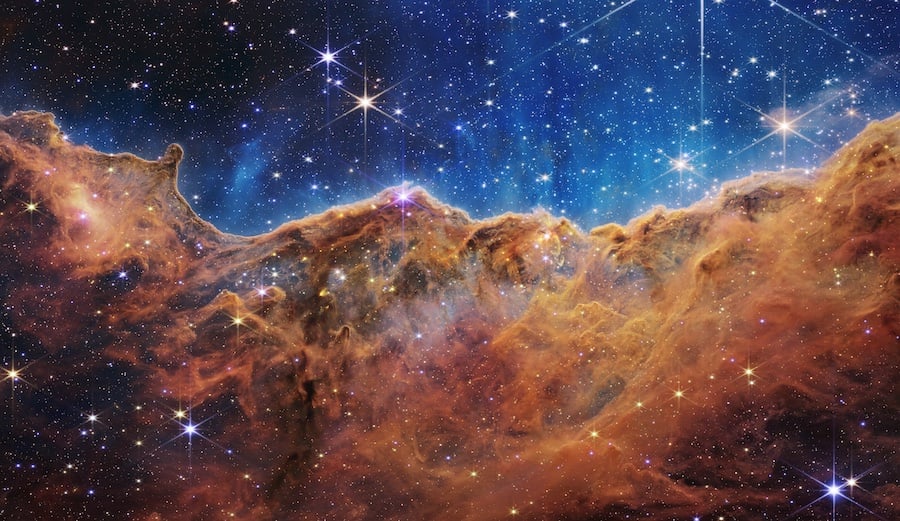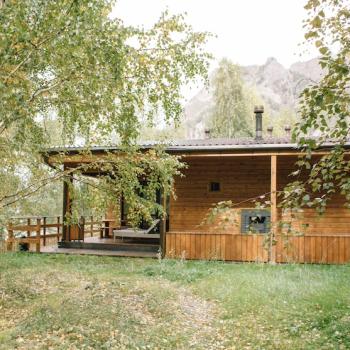
The parable in this Sunday’s lectionary reading (Luke 18:1-8) about a widow’s persistence before an unjust judge is one of a few parables in which Jesus uses a story-snapshot—which is what a parable is—to portray and commend faith-persistence. The snapshot seems to be saying: No matter what happens, no matter how grim things look, don’t despair, don’t give up hope.
This past weekend I participated in a gathering of clergy of the Episcopal Diocese of Oregon in which we talked about climate change and the imperatives it raises. If there is an issue that can bring despair and a sense of hopelessness, it is climate change—especially as we see scenes of the climate’s effects in places like Pakistan, where floodwaters are causing unimaginable suffering. Sometimes we don’t want to think about climate change because the despair becomes overwhelming. But the main speaker at our gathering was an 18-year-old leader not from our tradition but from Hinduism, who spoke with such luminosity and passion about care for this planet—which he proclaims is absolutely top-of-mind for his generation—that it was hard to avoid an infusion of hope. And persistence—which Jesus is commending to us in our reading—requires hope. Maybe we cannot persist without it.
And hope begs action. Hope will never sit back and say: Nothing can be done. Saying this would be an expression of hopelessness. Hope gets up in the morning and believes our lives matters. Our individual lives can be a part of the problem or part of the solution, but in either case, each life matters. The choices I make this day count for something. So hope asks us to make choices each day that are part of a solution. Each of our choices and our lives may look different in various ways. At this gathering of ordained Episcopal deacons, one person spoke of deciding to do just one load of laundry per week; one spoke of consolidating trips and driving far less; one spoke of leading energy audits among church members; one spoke of having solar panels installed at their home; one spoke of changing to a more energy-efficient vehicle; one spoke of shifting energy use to times of off-peak usage; and so on. Lifestyle decisions that are hope in action. Not all of us can do all of these things, perhaps, but all of us can do some of them. That is what hope looks like.
But I also think hope looks bigger than this. As we sat in this gathering, I kept thinking of the images we’ve recently seen from the James Webb telescope. Stars whose light is 13 billion years old—almost as old as the Big Bang itself. The most distant galaxies. A universe so enormous it makes Earth look like less than a speck of dust in the big scheme of things. To me hope also looks like putting ourselves in perspective, trying to have a much wider and longer view than we normally have. The fact is, we most often have a hard time seeing beyond our own small selves and our own concerns, let alone seeing the concerns of the wider global community, let alone seeing the concerns of our planet, let alone seeing beyond that to this universe we inhabit. But for me, a faith perspective tries to embrace the idea that we as human beings, and we as a planet, are not the end-all. God is manifest throughout this entire mind-boggling universe and will be long after we are gone. Even without climate change, evolutionary biology says that someday—even if many thousands of years from now, the human race or Homo Sapiens will not be. Now that is an idea to wrap our heads around.
A faith perspective acknowledges that the end of us will not be the end of a creation shot through with Spirit down to the last particle. Yes, one doesn’t have to look far to see that this Earth is a most stunning and extraordinary gift. And yes, each of us must be absolutely faithful to act in ways to halt climate change. And yes, someday we won’t be here. And that too is okay. This is not fatalism; this is putting ourselves in perspective; this is facing the facts. This is taking to heart part of the ancient prayer Christians have been saying for thousands of years: “Heaven and earth are full of your glory.” We can say this and understand this in ways our thousands-of-year-ago forebears could not begin to conceive. What does it mean to us, especially in 2022 after seeing the images from the James Webb telescope, to say that the heavens, the beyond-all-imaging breadth of the heavens are as full of God’s glory as we are, as this Earth, our planetary home, is? This is a faith meditation that can give us hope if we are willing to put ourselves in perspective.
Thank you for supporting my work by subscribing.
Wren, Winner of a 2022 Independent Publishers Award Bronze Medal.














